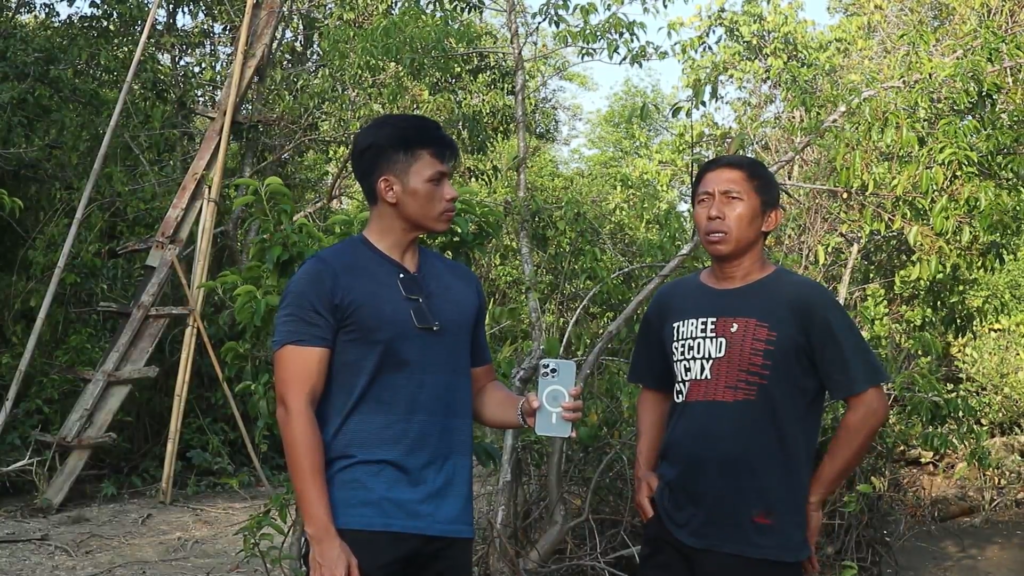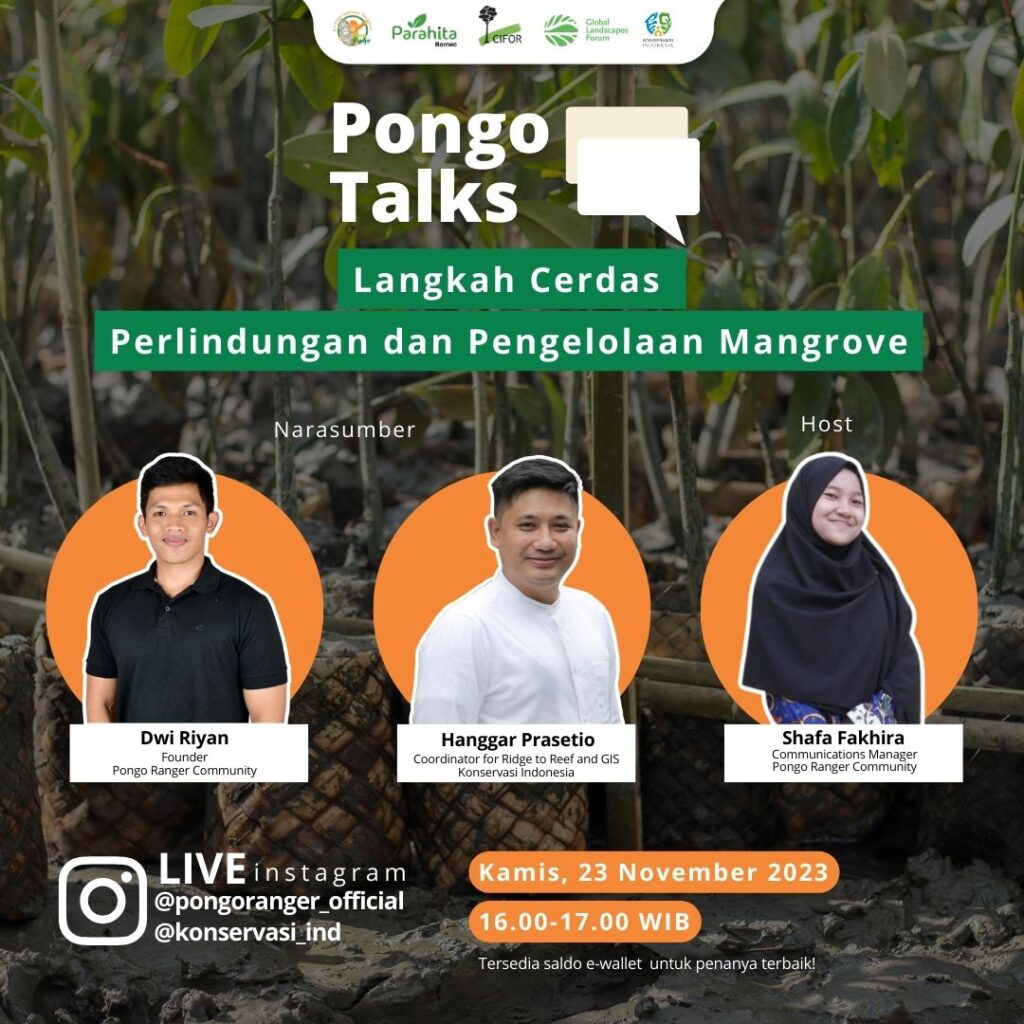In collaboration with the Global Landscape Forum (GLF), Pongo Ranger Community has launched the Pongo-dopsi program, aimed at supporting mangrove restoration in Ketapang, Indonesia. Engaging local youth as initiators and partnering with various stakeholders, this initiative emphasizes the importance of proper planning to ensure successful implementation. By bringing together different parties and utilizing a strategic approach, the program strives to achieve tangible results in restoring and conserving mangrove ecosystems.
Internal Discussion
Initiating our project, we kicked off with internal discussions to ensure everyone was on the same page. These discussions enabled us to assign specific roles and responsibilities, ensuring smooth progress. Recognizing the unique strengths and capabilities of each team member, we believed in harnessing their full potential to achieve project success. Not only does this endeavor empower coastal communities, but it also serves as a platform for our personal growth. Through this project, we develop vital skills such as effective communication, presenting ideas, self-confidence, and critical thinking, fostering a holistic learning experience for all involved.
Mentorship Session
Recognizing the need for guidance throughout our journey, we sought assistance to ensure that each step was well-directed. The Global Landscape Forum (GLF) came to our aid by providing mentors who became invaluable assets in our planning process. Through scheduled meetings and thoughtful discussions, these mentors shared their expertise and offered valuable insights. Their guidance empowered us to develop comprehensive plans aligned with our vision. With the mentorship support, we gained a broader perspective and a clearer path forward, enhancing our confidence in navigating the challenges that lie ahead. During our meetings with mentors, we took the opportunity to enhance our existing plans by incorporating additional insights and addressing any gaps or potential risks. By adding these crucial points to our plan sheets, we ensured that no important details were overlooked. This iterative process of refining our plans increased our confidence and preparedness for the future, as we aimed to leave no room for uncertainty.
Stakeholder Mapping
In our planning process, we made sure to proactively map out potential parties who could be instrumental in supporting our project. We identified individuals and organizations who could contribute as speakers, liaisons with local communities, and in various other capacities. Recognizing that this project is a collaborative endeavor, we understood the significance of engaging and partnering with diverse stakeholders. By fostering cooperation and involvement from different parties, we aimed to create a united front, pooling together resources, expertise, and perspectives to achieve our shared goals.

Dwi Riyan interviewed farmer about the urgency of mangrove restorations
On the next step, we had a chance to visit our targeted area for restoration. As we know, field surveys play a pivotal role in the success of a mangrove restoration project. In our case, we seized the opportunity to conduct a comprehensive assessment of the mangrove planting area in Tanjung Baik Budi Village, Ketapang. This crucial activity, carried out by dedicated Pongo Ranger teams, allowed us to gather firsthand information about the soil conditions, potential challenges, and any other vital details essential for our plantation efforts.
By conducting a thorough field survey, we gained crucial insights into the specific requirements of the site and identified any potential disturbances that could affect the growth and development of the mangroves. This on-site assessment ensured that we were well-prepared and equipped with the necessary knowledge to make informed decisions throughout the restoration process.
Activated Social Media
Last but not least, we took educational initiatives through Instagram, utilizing the power of social media to promote our mangrove restoration program. Our aim was to reach a wider audience beyond Ketapang. We curated educational content in a style that resonated with our audience, sharing mini blogs and video reels. Leveraging social media allowed us to expand our outreach, inspiring more individuals to get involved and raising awareness about the importance of mangrove restoration. By embracing these digital platforms, we sought to create a ripple effect, influencing people from various locations to join our cause and contribute to the preservation of coastal ecosystems.

To put it all together, we reflect on the significance of the Restoration Stewards 2023 project. While it spans just one year, its impact can reverberate far beyond that timeframe. To ensure the long-term success of this program, proper planning is essential. By carefully strategizing, adapting as needed, and consistently evaluating our progress, we can lay the groundwork for sustained results. The restoration of mangroves and the preservation of coastal ecosystems demand an ongoing commitment that extends well into the future.
By Shafa Fakhira, social media specialist, Pongo Ranger Community
Edited by Dwi Riyan, 2023 Restoration Stewards

